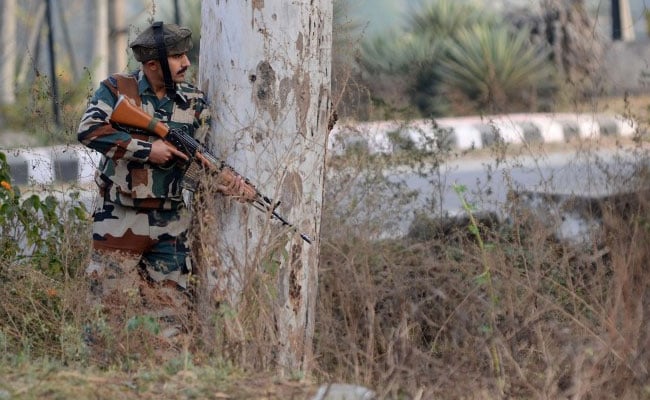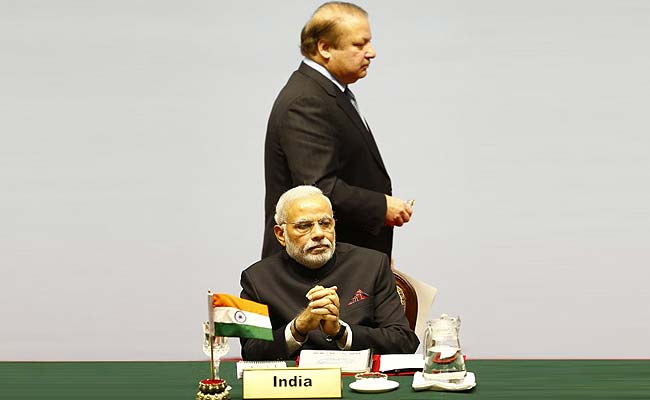The second story relates to the meeting between Prime Minister Narendra Modi and armed forces chiefs in the wake of the terrorist attack in Uri in September. It is said the Prime Minister had to strongly insist that some form of retaliation was necessary to send a strong message to the Pakistani establishment - even if 18 soldiers had died because a fire had consumed their tent.
In the wake of the Nagrota attack, what is India planning to do? The option of surgical strikes across the Line of Control has been utilized, as has been the marshaling of soldiers across the international border - Operation Parakram in 2002, after the attack against the army base at Kaluchak - while diplomatic initiatives which include the withdrawal of the High Commissioner have been employed, and failed.
Clearly, mounting security lapses at army bases are no hedge against bleeding-heart nationalism. Surely Rajya Sabha MP Rajeev Chandrasekhar believes his private member's bill to declare Pakistan a terrorist state, introduced last week, has received a shot in the arm, so it will be interesting to see if the BJP supports it or not - although it is unlikely that Chandrasekhar would have introduced his legislation without a nod from the powers-that-be in government.
Nagrota, in fact, is the moment of truth for Narendra Modi. When Pathankot happened, Modi had just finished dropping in on Nawaz Sharif only the week before. Uri was followed by surgical strikes across the LoC. With Nagrota comes the realization that the collusion of terror between the Pakistani "deep state" (the army and the ISI) and anti-India jihadist groups like the Lashkar-e-Taiba and the Jaish-e-Mohammed operating inside Pakistan is too deep for it to be dismantled by an occasional terror strike under the cover of night and for the purpose of soothing your domestic audience.

Seven soldiers were killed in the massive terror attack on Nagrota army base near Jammu on Tuesday
Question is, what should India do? It is unlikely that peace talks will start when Pakistan's foreign advisor Sartaj Aziz comes to Amritsar for the Heart of Asia conference on the weekend, especially after Nagrota. To be fair to Modi, the dialogue was unlikely anyway because in the wake of the Uri attack, the Prime Minister had decided he would take a tough line on engagement with Pakistan.
According to Ashley Tellis, Senior Fellow at the US think-tank Carnegie Endowment for International Peace, "Pakistan cannot or will not control its jihadi proxies, and India is unwilling to talk under the shadow of the gun. So, even if a dialogue is resumed, where can it lead but to more mutual recriminations?"
The Obama administration was, towards the end, veering in favour of the Indian position that talks and terror cannot go hand in hand. This explains why the international community chose to turn a blind eye to the killings in Kashmir since the death of Hizbul Mujahideen commander Burhan Wani in July. There was a furore in the international press, but that has passed, as John Kerry et al have moved to other more pressing issues, including Aleppo.
As for Trump, it is too soon to say which way he will swing. His campaign pronouncements certainly endeared the Republican to a section of the Indian establishment, but if Mitt Romney becomes Secretary of State as is being currently debated, then America's strategic compulsions could force it to open a channel of communication towards Pakistan.

PM Narendra Modi and Pakistan Prime Minister Nawaz Sharif at the 18th SAARC Summit in 2014
Even if the Rajya Sabha and the Lok Sabha (where the BJP has a majority) passes Chandrasekhar's bill, what value would it have, apart from having an adoring home audience pat you on the back? The UN has so far not been able to pass sanctions against Jaish-e-Mohammed chief Masood Azhar because the Chinese have blocked the decision; will China ever allow Pakistan to be named as a "terrorist state?"
Pass the hat around to the other groupings. ASEAN is a non-starter, because China is an influential player in that region, as is APEC where China is key. Russia has now joined the Chinese bandwagon and will fund a gas pipeline from Karachi to Lahore, apart from continuing military exercises with Pakistan.
Even the US, India's new best friend, will make haste to be friends with the new army chief in Pakistan, knowing well that the Pakistan army still holds most of the cards for peace inside Afghanistan because of its leverage over Taliban groups.
Modi has to think hard about what he wants to do with his Pakistan policy. There has been too much of a see-saw these past two years. Like his predecessors, Manmohan Singh and Atal Behari Vajpayee, the only way to improve Pakistan's behavior is to reach out to the people of Pakistan and help them neutralize their own "deep state" and their own terrorists.
That would mean reaching out to the wily Nawaz Sharif, who has ensured like no previous Pakistani Prime Minister that an army chief retires on time. Gen. Bajwa is Nawaz Sharif's man, at least for the moment. Let's give the Pakistan Prime Minister some credit for what he has done.
Certainly, Sartaj Aziz and his Indian interlocutors are expected to shake hands and exchange niceties in Amritsar - the media will go mad, of course, pushing the intended hero of the conference, Afghanistan, out of the limelight.
No matter. Modi and his men (the only woman in his government who has the sense and the experience in foreign policy, Sushma Swaraj, is out of action for the moment) will forego the opportunity at Amritsar to restart talks with Pakistan, but others will come up.
Just like Manmohan Singh, Modi must institute a back-channel with Pakistan and jumpstart a dialogue out of the public eye that will create the opportunities to take things forward. Just like Vajpayee, Modi must look inwards and reach out to his own Kashmiris and resolve the problem at home.
The time has come for the Prime Minister to put aside the tactics of shock and awe - surgical strikes, cancelling the SAARC regional summit, getting groupies like Chandrasekhar to introduce bills declaring Pakistan a terrorist state - and sit down and think through a strategy on Pakistan where all the pros and cons are properly debated.
(Jyoti Malhotra has been a journalist for several years and retains an especial passion for dialogue and debate across South Asia.)
Disclaimer: The opinions expressed within this article are the personal opinions of the author. The facts and opinions appearing in the article do not reflect the views of NDTV and NDTV does not assume any responsibility or liability for the same.


